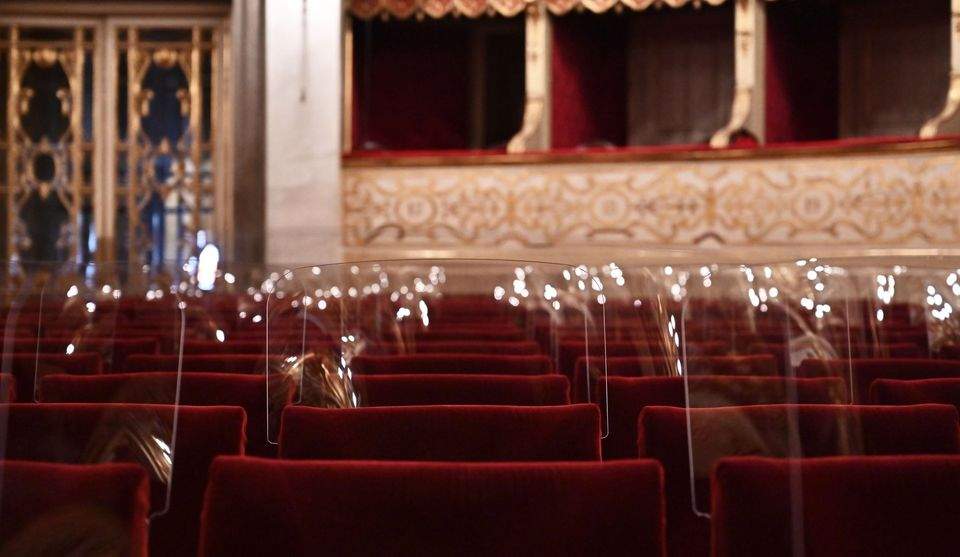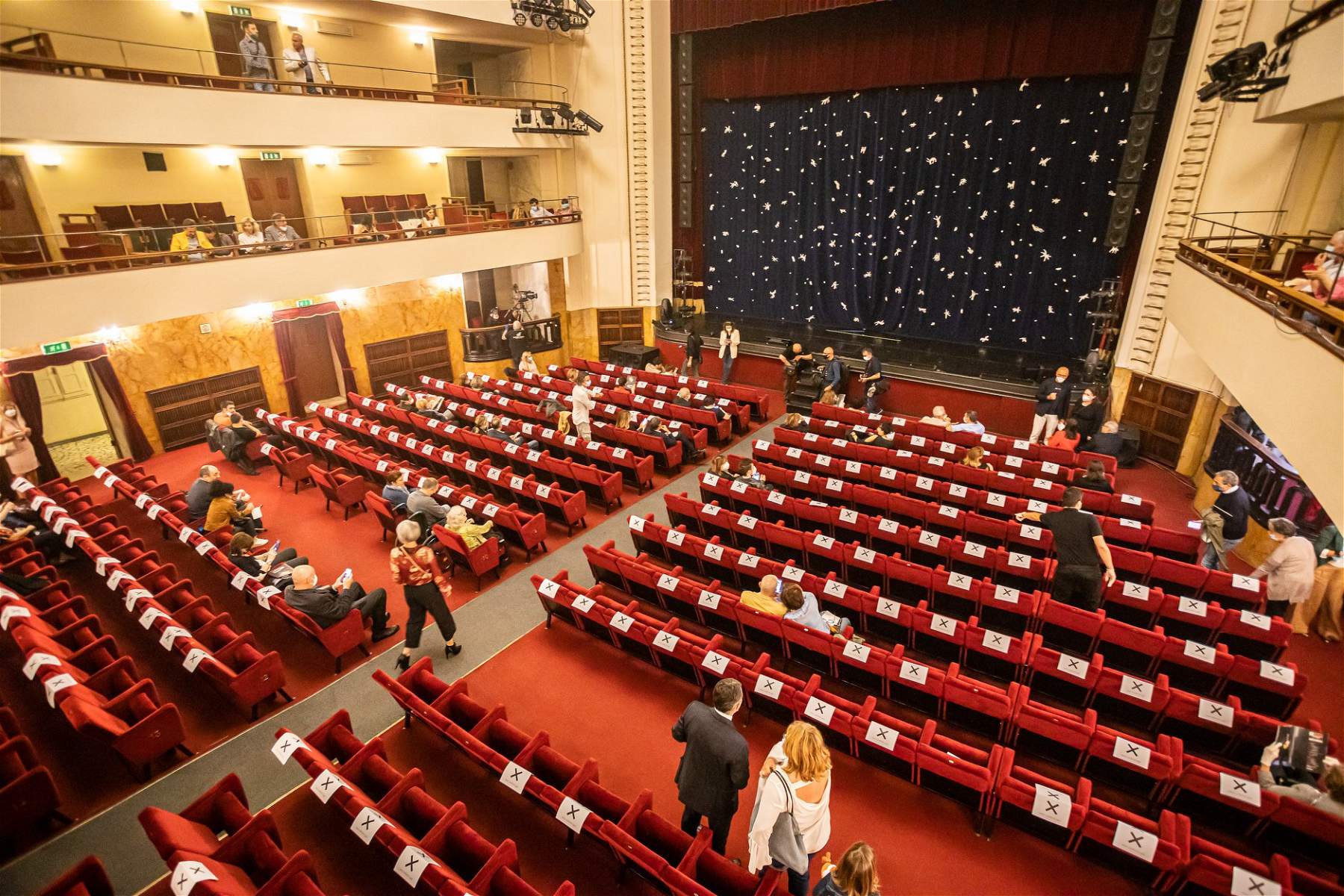From an article published this morning in the Manifesto, we learn that among the measures under consideration by the government to contain the wave of Covid-19 contagion would include a curfew from 9 or 10 p.m. until 6 a.m., which would therefore entail the closure of all businesses, but an exception for cinemas and theaters would be considered. Reports coming in are mixed, since other sources, on the contrary, predict that there will be no “discounts” for theaters. In light of the current situation, it is right for the government to think about stricter measures to limit the spread of the contagion, but it is still good for someone to assume an exception for cinemas and theaters, for several reasons.
First of all, the fact that, at the moment, cinemas and theaters are basically safe places: a few days ago, AGIS released the results of a survey conducted on 2,782 live performances from the reopening of theaters until early October, attended by 347,262 spectators. Only one case of Covid-19 was detected, which was immediately adequately traced, and which did not produce contagion among the spectators, since, AGIS points out (based on reports received from territorial ASLs), all those who came into contact with that one case during the performance tested negative. Similar data for cinemas as well: last Oct. 5, the National Association of Cinema Exhibitors let it be known that, since June 15 (the date of the reopening of theaters), no case of infection has been recorded in ANEC-affiliated facilities. The only known outbreak was recorded last October 13 at the Petruzzelli in Bari, but it was a case of contagion among employees and not among spectators: an event that in any case led to the immediate closure of the theater to the public.
 |
| Teatro Regio in Parma, seats with Plexiglas barriers |
 |
| Spacing at the Duse Theater in Bologna (photo taken last June 15) |
If the most effective means of counteracting the contagion are spacing and masks, then it is reasonable to think that there is little to fear from cinemas and theaters: entrances are restricted and reduced with respect to capacity, personal protective equipment must be worn for the duration of one’s stay in the theater, and adequate spacing is provided for non-resident spectators (and then it should be remembered that usually audiences at the cinema and theater are silent, thus containing the emission of possibly contaminated particles). It should also be added that cinema and theater-goers are an extremely disciplined population: no one in the theater, to our knowledge, has ever rebelled against the rules in place.
One can then easily object by claiming that the data released by AGIS and ANEC mainly concern the summer season, when most shows are held outdoors, a situation that in itself significantly reduces the risk of contagion. This is true (in part, since cinemas and many theaters are indoors even in summer anyway), just as it is true that industry associations try to defend the category as much as possible: but it is also true that, if quotas, spacing and masks are sufficient to minimize risks, there is no reason to believe that a movie theater or theater that scrupulously complies with health and medical requirements (and the operators, this summer, have worked commendably hard to adhere to the rules) is more at risk than a supermarket, restaurant or office. Many, in recent weeks, have mentioned how theaters and cinemas are the safest places of sociability at the moment, because of the strictness of the rules in place, their observance, and the very nature of the activities that take place there.
A curfew closure of them would be an excessively punitive measure for a sector that, at least according to the evidence so far, has not contributed to the spread of contagion, and has scrupulously observed the rules. In order to prevent cinemas and theaters from closing, it will be sufficient to consider the ticket as a title to attest to free movement in the evening. It will mean that the sale will have to take place mostly online, an eventuality that will, moreover, favor tracking (and heaven forbid that keeping only cinemas and theaters open will entice anyone to go there) and will further avert the risk of contagion that may occur when moviegoers are waiting in line in front of the ticket office. To close cinemas and theaters there will be time: it is good that the measures are progressive. Of course, the “zero risk” does not exist even for theaters, but it is certain that at the cinema or theater the danger is less than elsewhere, and in case the contagion spreads to the theaters as well, they will not hesitate to close them. The industry was already quite tried even before the coronavirus broke in to alter our lives, and further tightening would be nefarious. Conversely, closing everything in the evening except theaters and cinemas would also be a move with strong social value, to communicate that, at this time, we need culture more than ever.
Warning: the translation into English of the original Italian article was created using automatic tools. We undertake to review all articles, but we do not guarantee the total absence of inaccuracies in the translation due to the program. You can find the original by clicking on the ITA button. If you find any mistake,please contact us.